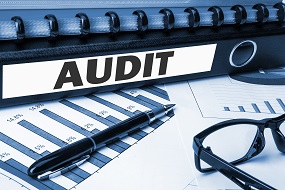 Thanks to the Affordable Care Act (ACA), the compliance spotlight has shifted away from COBRA. Some opinion pieces have even called for the death of COBRA. These opinions overlook many of COBRA’s key benefits. For example, COBRA allows participants to take advantage of dollars already spent to satisfy deductibles. Unlike Marketplace coverage, COBRA provides retroactive coverage - thus preventing a gap. COBRA also takes into account all of the members of the family (creating Qualified Beneficiaries), not just the employee.
Thanks to the Affordable Care Act (ACA), the compliance spotlight has shifted away from COBRA. Some opinion pieces have even called for the death of COBRA. These opinions overlook many of COBRA’s key benefits. For example, COBRA allows participants to take advantage of dollars already spent to satisfy deductibles. Unlike Marketplace coverage, COBRA provides retroactive coverage - thus preventing a gap. COBRA also takes into account all of the members of the family (creating Qualified Beneficiaries), not just the employee.
Bottom line: COBRA remains relevant. Plan sponsors are required to fully comply. And, like it or not, COBRA compliance will continue to be monitored and enforced by IRS audits.
In 2012, the IRS published a document entitled, “Audit Techniques and Tax Law to Examine COBRA Cases (Continuation of Employee Health Care Coverage).” The document is accessible at http://www.irs.gov/Businesses/Small-Businesses-&-Self-Employed/Audit-Techniques-and-Tax-Law-to-Examine-COBRA-Cases-Continuation-of-Employee-Health-Care-Coverage.
While the IRS COBRA Audit Guidelines are a couple of years old, they continue to serve as an IRS auditor’s playbook when reviewing a plan sponsor’s COBRA compliance today. The Guidelines also include an overview of the COBRA requirements. By using these Guidelines, plan sponsors can ensure they are prepared and in compliance before the IRS comes knocking.
The IRS COBRA Audit Guidelines instruct the examiner to begin by requesting the following documents:
- A copy of the health care continuation coverage procedures manual
- Copies of standard health care continuation coverage form letters sent to the qualified beneficiaries
- A copy of the taxpayer’s internal audit procedures for health care continuation coverage
- Copies of all group health care plans
- Details pertaining to any past or pending lawsuits filed against the taxpayer for failing to provide appropriate continuation coverage
- Copies of federal and state employment tax returns filed during the current period under examination and the preceding year (returns will show changes in the number of employees on the payroll between the two years)
- List of all individuals affected by a qualifying event (for example, termination, death, etc.) during the current year
- List of all individuals covered at the beginning and end of the plan year for each plan
- Personnel records of all employees affected by a qualifying event. The personnel records must include the following information
- Name and address of each beneficiary
- Date of the qualifying event
- Copies of the notification letters sent to qualified beneficiaries
- Type of coverage received under COBRA
- Premium payments required under COBRA
- Copy of the employer’s letter to the insurance company/plan administrator notifying them of a qualifying event
- Reasons for termination of COBRA coverage properly elected by the beneficiary
- Reasons for employment termination
In addition to document requests, the IRS COBRA Audit Guidelines provide interview topics for the examiner to ask the plan sponsor. They include:
- The number of qualifying events (for example, terminations, reduced hours, etc.) occurring in the year under examination through the current date
- The method by which qualified beneficiaries are notified of their rights to continuing health care coverage under COBRA
- The method by which the plan administrator is notified that a qualifying event has occurred
- The election made by qualified beneficiaries to continue health care coverage
- The premium paid by qualified beneficiaries for continuing coverage under the health plan
These lists can be frightening … especially for a plan sponsor that does not have the first item on the list, a “health care continuation coverage procedures manual.” Even more frightening is the potential cost of a violation. The IRS can assess an excise tax for each day that the plan sponsor is in violation. In addition to costly litigation, there are also penalties under ERISA that can be assessed.
To avoid these costs, plan sponsors and their advisors should perform a mock IRS COBRA audit using these Guidelines. Ensure that the plan sponsor could provide an appropriate document or response to each of the requests listed above.
Plan Sponsors who utilize an effective COBRA administrator should have an easier time ensuring compliance. A documented inquiry to your COBRA administrator asking for confirmation of compliance in all areas covered by the IRS COBRA Audit Guidelines will serve as evidence that plan sponsors take their role seriously. This also places the burden of performing a mock IRS COBRA audit on the COBRA administrator rather than the plan sponsor.
Having an effective COBRA administrator allows plan sponsors to focus on the enormous compliance requirements of the Affordable Care Act while still achieving COBRA success.
COBRA CONUNDRUMS is reprinted from the November 2014 issue of Health Insurance Underwriter Magazine featuring our very own Robert Meyers. Want to receive more insightful benefit administration tips? Subscribe to our blog in the top right corner of this screen.


